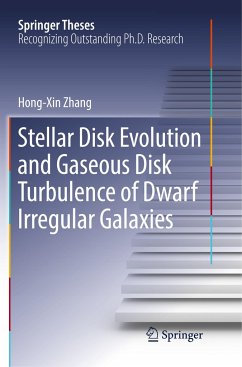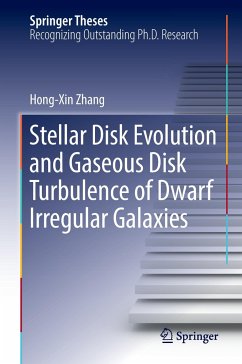This book focuses on the stellar disk evolution and gas disk turbulence of the most numerous galaxies in the local Universe - the dwarf galaxies. The "outside-in" disk shrinking mode was established for a relatively large sample of dwarf galaxies for the first time, and this is in contrast to the "inside-out" disk growth mode found for spiral galaxies. Double exponential brightness profiles also correspond to double exponential stellar mass profiles for dwarf galaxies, which is again different from most spiral galaxies. The cool gas distribution in dwarf galaxies was probed with the spatial power spectra of hydrogen iodide (HI) gas emission, and provided indirect evidence that inner disks of dwarf galaxies have proportionally more cool gas than outer disks. The finding that no correlation exists between gas power spectral indices and star formation gave important constraints on the relation between turbulence and star formation in dwarf galaxies.
Bitte wählen Sie Ihr Anliegen aus.
Rechnungen
Retourenschein anfordern
Bestellstatus
Storno








